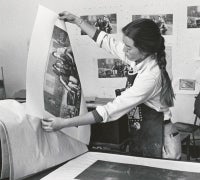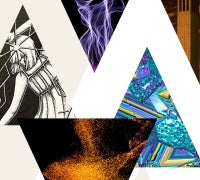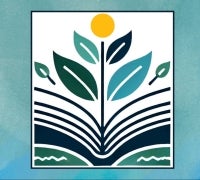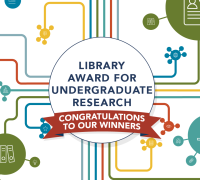- Mon, 03/02/2026 - 12:00pm to 1:00pm
Event
Register Now
This interactive UCSB Library workshop is offered in celebration of Open Education Week (OEW), March 2–6, 2026. OEW is an annual...
More- Wed, 03/04/2026 - 12:00pm to 1:00pm
Event
Register Now
This UCSB Library workshop is offered in celebration of Open Education Week (OEW), March 2–6, 2026. OEW is an annual global event...
More- Wed, 02/04/2026 - 12:00pm to 2:00pm
- Wed, 03/04/2026 - 12:00pm to 2:00pm
- Wed, 04/01/2026 - 12:00pm to 2:00pm
- Wed, 04/29/2026 - 12:00pm to 2:00pm
- Wed, 06/03/2026 - 12:00pm to 2:00pm
Event
Hybrid Event - Join on Zoom
Would you like to work on your open source goals in a focused and motivating environment?
In partnership with UC's new Open Source Program Office (OSPO) Network, the UCSB Open Source...
More- Thu, 03/05/2026 - 4:00pm to 5:30pm
Event
Location: Student Resource Building, 3rd Floor Forum
Register Now
Students, staff, and faculty are welcome to join the Office of International Students...
More- Fri, 03/06/2026 - 10:30am
Event
Registration on Shoreline: https://cglink.me/2dD/r2271238
This is the first workshop of a three-workshop series on creating maps and analyzing geospatial data with ArcGIS Online. The goal of this workshop is to demonstrate how...
More- Fri, 03/06/2026 - 12:00pm to 1:30pm
Event
Register Now
Getting ready to complete your graduate degree but not sure if traditional academic positions are for you? Curious about careers in Galleries, Libraries, Archives, and Museums (a.k.a. GLAM), but not...
More- Sun, 03/08/2026 - 2:00pm to 3:00pm
Event
- Wed, 03/11/2026 - 12:00pm to 1:00pm
Event
Register Now
The UCSB Library is offering a workshop for graduate students on publishing. This workshop is designed to teach you about the publishing process, different venues available for publishing your...
More- Thu, 03/12/2026 - 12:00pm to 12:30pm
Event
Graphical abstracts condense complex research into a single, focused visual. In this session, we will explore recommendations for defining the message, structuring the layout, and using color and...
More- Fri, 03/13/2026 - 11:00am to 2:00pm
Event
Take a healthy study break before finals. Stretch, color, grab snacks, and pick up free bluebooks and scantrons. Sign-up for a massage (first-come, first-served, in person, starting at 10:30 AM).
In collaboration with UCSB Health & Wellness and...
More- Mon, 03/16/2026 - 9:00am to Fri, 06/26/2026 - 4:00pm
Exhibition
This collaborative exhibition celebrates the intersection of art and environmental stewardship, highlighting the efforts of the Oak Group, the UCSB Cheadle Center for Biodiversity & Ecological Restoration, and Coal Oil Point Reserve to conserve the Devereux Slough. Art in Service of the Land...
More- Tue, 03/17/2026 - 9:30am to 5:30pm
- Wed, 03/18/2026 - 9:30am to 5:30pm
- Thu, 03/19/2026 - 9:30am to 12:00pm
Event
The Office of Teaching and Learning and the UCSB Library invite you to attend the 2026 Teaching and Learning Symposium from Tuesday, March 17-Thursday, March 19. This year’s program brings together UCSB instructors, postdocs, staff, and students to discuss...
More- Tue, 03/17/2026 - 9:30am to 5:30pm
- Wed, 03/18/2026 - 9:30am to 5:30pm
- Thu, 03/19/2026 - 9:30am to 12:00pm
Event
The Office of Teaching and Learning and the UCSB Library invite you to attend the 2026 Teaching and Learning Symposium from Tuesday, March 17-Thursday, March 19. This year’s program brings together UCSB instructors, postdocs, staff, and students to discuss...
More- Wed, 03/18/2026 - 12:00pm to 1:15pm
Event
Register Now
The UCSB Library is offering a workshop for graduate students on publishing. This workshop is designed to teach you about the publishing process, different venues available for publishing your...
More- Wed, 02/18/2026 - 12:00pm to 1:00pm
- Wed, 03/18/2026 - 12:00pm to 1:00pm
- Wed, 04/15/2026 - 12:00pm to 1:00pm
- Wed, 05/20/2026 - 12:00pm to 1:00pm
Event
Register Now
Are you experienced with open source software or hardware, or just curious about open source?
In partnership with UC's new Open Source Program Office (OSPO) Network, the UCSB Open Source...
More- Tue, 03/17/2026 - 9:30am to 5:30pm
- Wed, 03/18/2026 - 9:30am to 5:30pm
- Thu, 03/19/2026 - 9:30am to 12:00pm
Event
The Office of Teaching and Learning and the UCSB Library invite you to attend the 2026 Teaching and Learning Symposium from Tuesday, March 17-Thursday, March 19. This year’s program brings together UCSB instructors, postdocs, staff, and students to discuss...
More- Wed, 02/04/2026 - 12:00pm to 2:00pm
- Wed, 03/04/2026 - 12:00pm to 2:00pm
- Wed, 04/01/2026 - 12:00pm to 2:00pm
- Wed, 04/29/2026 - 12:00pm to 2:00pm
- Wed, 06/03/2026 - 12:00pm to 2:00pm
Event
Hybrid Event - Join on Zoom
Would you like to work on your open source goals in a focused and motivating environment?
In partnership with UC's new Open Source Program Office (OSPO) Network, the UCSB Open Source...
More- Tue, 04/07/2026 - 4:00pm to 5:00pm
Event
Location: Student Resource Building (SRB) MPR
Register Now
Back by popular demand, join us for another crafty collaboration between Health & Wellness and...
More- Tue, 04/14/2026 - 4:00pm
Event
Register Now
What can Shakespeare – or literature more generally – tell us about ethics? In the Pacific Views Talk for Spring 2026, Professor Jim Kearney (...
More- Wed, 02/18/2026 - 12:00pm to 1:00pm
- Wed, 03/18/2026 - 12:00pm to 1:00pm
- Wed, 04/15/2026 - 12:00pm to 1:00pm
- Wed, 05/20/2026 - 12:00pm to 1:00pm
Event
Register Now
Are you experienced with open source software or hardware, or just curious about open source?
In partnership with UC's new Open Source Program Office (OSPO) Network, the UCSB Open Source...
More- Tue, 04/21/2026 - 4:00pm to 5:00pm
Event
Location: Student Resource Building (SRB) MPR
Register Now
Crying in H-Mart has been widely renowned for its...
More- Wed, 04/22/2026 - 4:00pm to 5:15pm
Event
Register Now
Join UCSB Reads and Goleta Valley Library for an afternoon of poetry readings in celebration of National Poetry Month!
The event will kick...
More- Wed, 02/04/2026 - 12:00pm to 2:00pm
- Wed, 03/04/2026 - 12:00pm to 2:00pm
- Wed, 04/01/2026 - 12:00pm to 2:00pm
- Wed, 04/29/2026 - 12:00pm to 2:00pm
- Wed, 06/03/2026 - 12:00pm to 2:00pm
Event
Hybrid Event - Join on Zoom
Would you like to work on your open source goals in a focused and motivating environment?
In partnership with UC's new Open Source Program Office (OSPO) Network, the UCSB Open Source...
More- Tue, 05/05/2026 - 5:00pm to 6:30pm
Event
Location: Student Resource Building (SRB) MPR
Register Now
In collaboration with UCSB Reads, join Health & Wellness for another cooking event...
More- Thu, 05/07/2026 - 7:30pm
Event
Register Now
More“Michelle Zauner has written a book you experience with all of your senses: sentences you can taste, paragraphs that sound like music. She seamlessly blends stories of...
- Thu, 05/14/2026 - 4:30pm to 6:30pm
Event
Register Now
The Office of Undergraduate Research and Creative Activities (URCA) and UCSB Library invite you to join us for an exhilarating event celebrating knowledge, innovation, and the art of...
More- Wed, 02/18/2026 - 12:00pm to 1:00pm
- Wed, 03/18/2026 - 12:00pm to 1:00pm
- Wed, 04/15/2026 - 12:00pm to 1:00pm
- Wed, 05/20/2026 - 12:00pm to 1:00pm
Event
Register Now
Are you experienced with open source software or hardware, or just curious about open source?
In partnership with UC's new Open Source Program Office (OSPO) Network, the UCSB Open Source...
More- Wed, 05/27/2026 - 4:00pm to 5:00pm
Event
Please join us for a reception and awards ceremony honoring the recipients of the 2026 Library Award for Undergraduate Research. Prizes of $750 for first place and $500 for second place will be awarded in each of three categories: Sciences & Engineering, Humanities & Fine Arts, and...
More- Wed, 02/04/2026 - 12:00pm to 2:00pm
- Wed, 03/04/2026 - 12:00pm to 2:00pm
- Wed, 04/01/2026 - 12:00pm to 2:00pm
- Wed, 04/29/2026 - 12:00pm to 2:00pm
- Wed, 06/03/2026 - 12:00pm to 2:00pm
Event
Hybrid Event - Join on Zoom
Would you like to work on your open source goals in a focused and motivating environment?
In partnership with UC's new Open Source Program Office (OSPO) Network, the UCSB Open Source...
More- Fri, 06/05/2026 - 11:00am to 2:00pm
Event
Take a healthy study break before finals. Stretch, color, grab snacks, and pick up free bluebooks and scantrons. Sign-up for a massage (first-come, first-served, in person, starting at 10:30 AM).
In collaboration with UCSB Health & Wellness and...
More



























